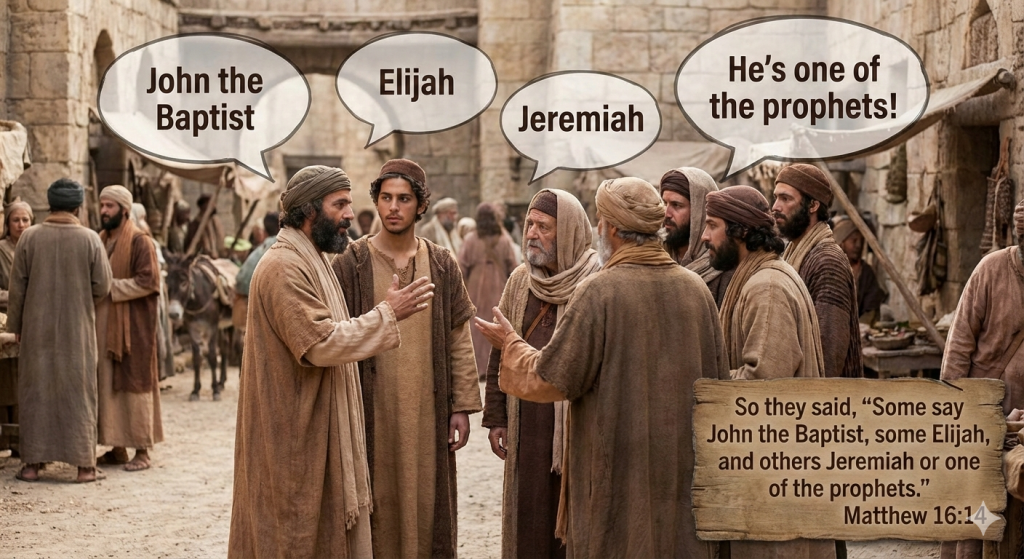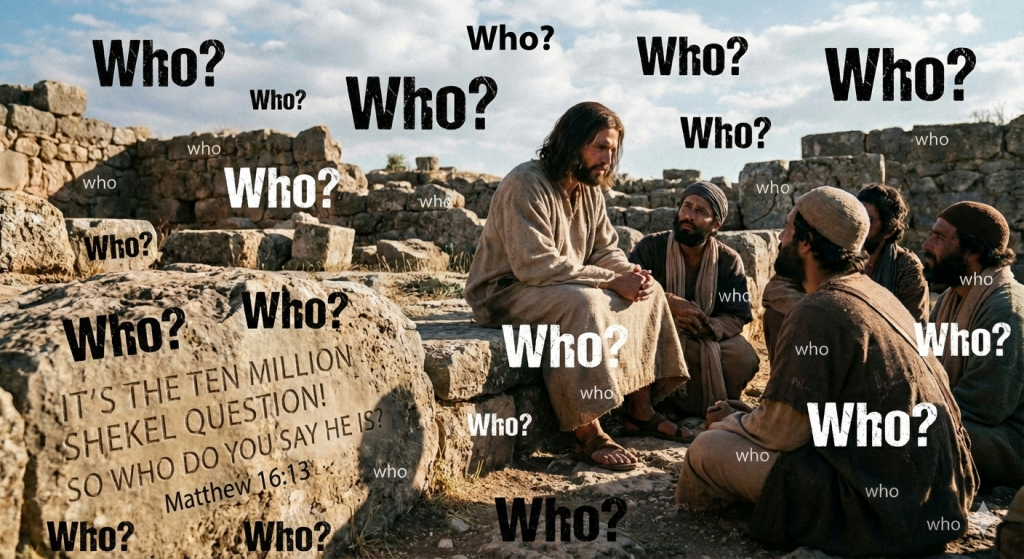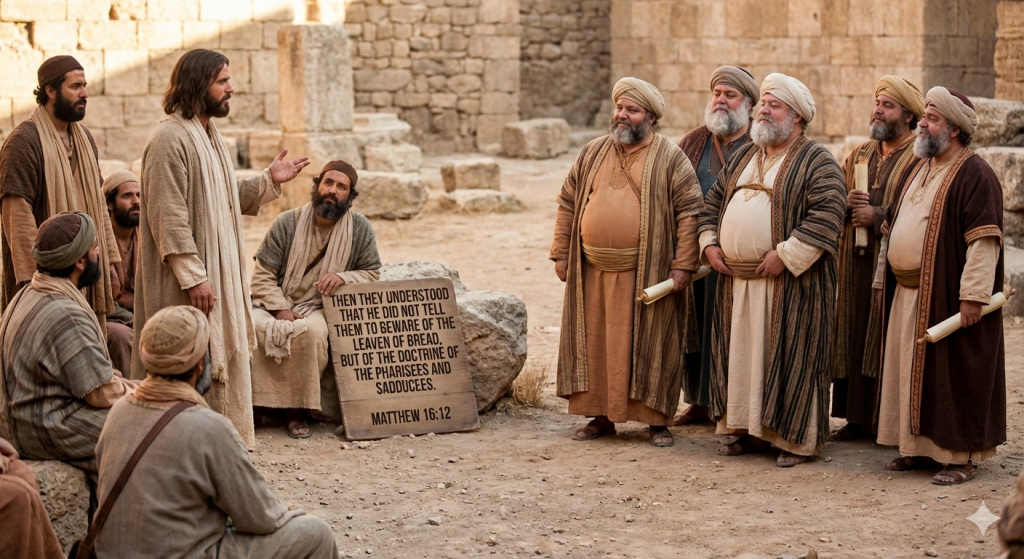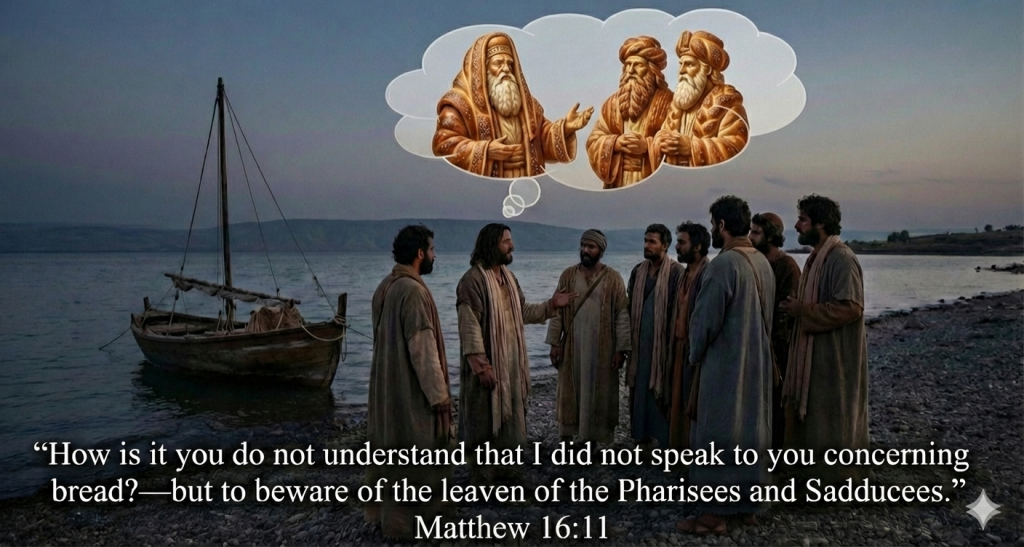Sunday, 1 February 2026
He said to them, “But who do you say that I am?” Matthew 16:15
Note: You can listen to today’s commentary courtesy of our friends at the “Bible in Ten” podcast. (Click Here to listen)
You can also read this commentary, scrolling with music, courtesy of our friends at “Discern the Bible” on YouTube. (Click Here to listen), or at Rumble (Click Here to listen).
“He says to them, ‘And you, whom you say Me to be?’” (CG).
In the previous verse, the disciples answered Jesus’ question concerning who people say He is. They answered, saying that some say John the Baptist or Elijah. Others, however, said He was Jeremiah or one of the prophets. Now that Jesus has been told the general speculation floating around about Him, “He says to them, ‘And you, whom you say Me to be?’”
The emphatic nature of the question sets the disciples apart from the others, such as, “Yes, that is fine, but what I am most curious about is who you… you say I am!” He is looking to see where their understanding of Him rests. But it isn’t that He didn’t already know. Rather, He is getting them to think through what they already know and verbally proclaim it.
They have seen the miracles, and they have heard the wisdom of His instructions. They already know what they think about Jesus, but the information needs to be unpackaged and properly presented. Once that is out, they can then reinforce that belief, build upon it, and more boldly proclaim it.
Life application: If you ever want to get your thoughts straightened out about something, maybe something you didn’t even know you wanted straightened out, have someone interview you.
For example, a college student is told that one of his assignments is to interview three people from three different religions, asking them what they believe and why. The student decides to interview a Muslim, an orthodox Jew, and a Christian radio host.
When he interviews them, he has a list of various questions about their faith, why they do certain things, how they perceive God, etc. It is with all certainty that all three of them will come away with more information about themselves than they ever realized.
The Muslim is a Muslim because his parents were Muslims. He does XX and XX because that is what he grew up doing. Asked where the basis of that comes from, he has no idea. Asked if it is found in the Koran, he admits he has no idea. Rather, he has never read it.
The same is true with the other two as well. They have gone through life never thinking about why they believe what they believe. They just KNOW it is right… well, they think. After the interview, they have no idea exactly why they believe what they believe. Even the Jew spent more time defending his faith from a personal viewpoint than from a valid, researchable, and verifiable source.
The Jew said, “We Jews get along really well with Catholics. We are always going to functions with Catholics.” When asked why, his answer was, “We’re a lot alike. Jews and Catholics live for this life. They let the rabbi or priest take care of the next life for us.”
He had never thought that through before, but now he is forced to think through why he associates with some and not with others. Hopefully, he will see how exceedingly dangerous his position is. Letting someone else take care of your eternal state! Didn’t Jim Jones do that for his flock in Guyana?
Don’t be afraid to put yourself under the microscope and have your views challenged. And don’t be afraid to ask probing questions of others that may help them realize how tenuous their position on faith really is.
People need Jesus. If you can’t defend why you believe in Jesus when asked about Him, you will not be a very good representative for His cause. So have someone interview you. Their questions are bound to be like others’ questions. You will be preparing yourself for the inevitable questions that people really want answers to. This is what Jesus has done with His disciples. Now they must stand up and explain themselves. How will that go?
Lord God, help us to find ways of properly unpackaging our thoughts so that we know what we actually think and believe. We may know something, but not know why we know it or how to properly defend it. It may even be that we know something that is actually indefensible. Help us to get all of this sorted out. To Your glory, we pray. Amen.





